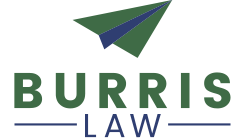As communications tools make it easier for patent applicants and inventors to collaborate with one another across jurisdictional borders and inventors work in jurisdictions where they may not be residents, technological innovations are increasing by leaps and bounds. In many cases, patents are sought for these technological innovations. Patent practitioners, patent applicants, and inventors need to be aware in such circumstances of the potential need for foreign filing licenses.
Essentially, many countries require patent applicants receive permission from their country before filing outside of that country. One form of permission is a foreign filing license. Generally, whether permission is required depends on the jurisdiction. Some countries require foreign filing licenses if the invention occurred in that country, some countries require foreign filing licenses if the inventor(s) are residents of that country, and some countries have other requirements for whether a foreign filing license is required.
Examples of Foreign Filing License Requirements
By way of not-limiting examples, the United States and China require foreign filing licenses where the invention was made in their respective countries. Germany, on the other hand, requires foreign filing licenses where the application contains state secrets. The United Kingdom requires foreign filing licenses where the invention was by a United Kingdom resident. Other countries have multiple triggers that require foreign filing licenses. Spain is one such jurisdiction that requires foreign filing licenses to the extent the invention was made in Spain or if the application was invented by a Spain resident.
India has some of the most stringent requirements, as it requires filing there first for all residents of India, regardless of where the invention occurred. Residency in India is not codified in the relevant patent laws and is instead tethered to inventors who qualify as a “tax resident” of India. An inventor may be a tax resident of India if (1) the person stayed in India for 182 days or more in the relevant financial year or (2) the person stayed in India for 60 days or more in the relevant financial year and 365 days or more in the past four years.
Conflicting Rules and Possible Penalties
Thus, it is possible that countries’ laws may conflict with one another, for example, where an invention was made in a given jurisdiction that requires foreign filing licenses of inventions made in that jurisdiction by an inventor that is a resident of a different jurisdiction that requires foreign filing licenses for residents of that jurisdiction. The consequences of failing to obtain permission to foreign file range from monetary penalties to forfeiture of patent rights to possible criminal liability (read: jail) for the inventors. Accordingly, it is important to consider what foreign filing laws, if any, may be in play so that a patent practitioner does not inadvertently subject a patent applicant or any inventor(s) to liability for failure to abide by foreign filing laws.
Additional Foreign Filing License Rules
In many jurisdictions, foreign filing licenses are granted as a matter of course after a predetermined period of time. The United States grants automatically foreign filing licenses six months after the patent application was filed, provided the subject matter is not subject to a secrecy order. Most jurisdictions, however, will not issue foreign filing licenses where the subject matter relates to technologies like atomic energy or defense. Some jurisdictions offer avenues for expediting obtaining foreign filing licenses, which can be invaluable if a patent applicant is facing a bar date. Some jurisdictions further allow for retroactively granted foreign filing licenses. In the United States, for example, a foreign filing license can be granted retroactively if the filing abroad occurred through error and the application does not disclose an invention related to national security. Yet other jurisdictions, such as India, have multiple patent offices that have differing rates at which they grant foreign filing licenses.
The World Intellectual Property Organization (WIPO) lists the relevant foreign filing laws of several jurisdictions here. The list, however, is not comprehensive. So, if a jurisdiction is not on this listing, patent practitioners should not assume that jurisdiction does not have foreign filing license requirements. If you are unsure whether a given jurisdiction has requirements to file for patent protection there first, we recommend reaching out to an associate in that jurisdiction. You also should consider exploring whether a foreign filing license will be required early on in the patent drafting process to determine where a patent applicant may need to file first.
If you have any questions related to this topic, please contact Neal Sanborn at neal@burrisiplaw.com.
